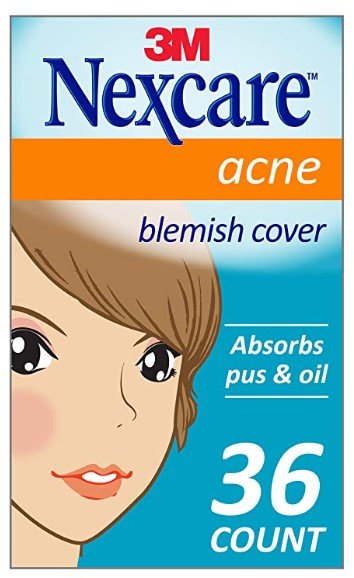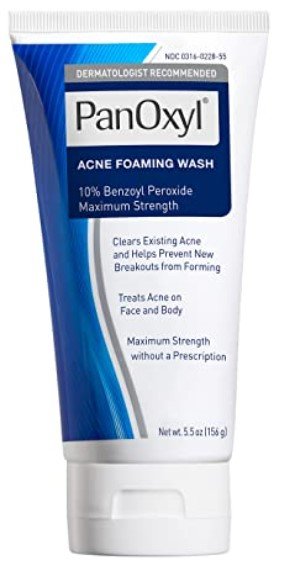In this article, l will look at some of the most effective hacks for acne to help you obtain healthy, clear skin. Millions of people worldwide suffer from the skin condition known as acne. While acne is generally thought only to affect teenagers, it can affect people of all ages and be brought on by a variety of factors.
Despite the wide range of conventional therapies available, many people need assistance locating a solution that satisfies their needs. However, this is when acne hacks come in. You can establish a personalized approach to treating and avoiding acne outbreaks by researching various natural therapies, skincare routines, and medical treatments.
How To Understand Acne?
The skin condition known as acne is brought on by oil and dead skin cells stuck in hair follicles. Whiteheads, blackheads, pimples, and cysts can develop due to this blockage. Acne can have many reasons, such as hormonal changes, heredity, stress, diet, and skincare practices. You can develop efficient management and preventative techniques for acne if you understand its aetiology.

Conventional Treatments Limitations
- The efficacy of conventional acne therapies, including topical creams and oral medications, is frequently constrained. While they might work for some people, others might not experience a noticeable improvement in their acne symptoms.
Traditional remedies frequently include adverse effects including as dryness, redness, and peeling. The unpleasant side effects may make it challenging to continue taking the drug. - Conventional treatments can necessitate a long-term commitment to producing effects, which can be discouraging for individuals seeking rapid relief. Before you see any results, it could take weeks or months of consistent use.
- For some skin types, traditional treatments might not be acceptable. Some acne remedies could be too harsh for delicate skin, while others might not work for severe cases of acne.
- Overusing traditional therapies can lead to antibiotic resistance, making long-term acne therapy more challenging. However, this is why it is critical to investigate alternate acne management and prevention methods, including natural therapies and lifestyle changes.
Diet’s Role In Acne
Diet greatly impacts how healthy your skin is and whether or not acne will develop. Sugar and refined carbohydrate-rich diets can raise insulin levels, triggering inflammation and sebum production, an oil that can clog pores and worsen acne. Similarly, meals heavy in saturated fat and dairy have also been connected to a higher incidence of acne.
Conversely, diets high in complete foods, such as fruits, vegetables, and lean protein, can give your skin the nutrition it needs to remain wholesome and clear. Dietary adjustments can successfully manage and prevent acne breakouts when coupled with other skin care routines and treatments.
Essential Skincare Habits
- An essential skincare practice includes cleansing your skin twice daily to help remove makeup, oil, and grime that can clog pores and cause acne. Use a non-comedogenic cleanser that won’t remove the oils from your skin.
- Once or twice a week, exfoliation can help to remove dead skin cells and unclog pores, which can help to avoid acne outbreaks. On the other hand, over-exfoliating could irritate your skin and result in irritation.
- Daily moisturizing can help keep your skin hydrated and healthy, reducing the likelihood of acne outbreaks. Look for a moisturizer that won’t clog your pores and is non-comedogenic.
- A crucial skincare routine that can help avoid acne flare-ups and reduce the risk of skin damage is sun protection. Wear safety equipment, such as helmets and broad-spectrum sunscreen, when outside. The SPF should be at least 30.
- Picking or squeezing your pimples can leave scars and cause new breakouts, a negative skincare habit. For effective acne therapy, turn to topical medications or see a dermatologist.
DIY Skincare Routine Hacks For Acne
A crucial skincare routine that can help avoid acne flare-ups and reduce the risk of skin damage is sun protection. Wear safety equipment, such as helmets and broad-spectrum sunscreen, when outside. The SPF should be at least 30.
Picking or squeezing your pimples can leave scars and cause new breakouts, a negative skincare habit. Use topical treatments instead, or consult a dermatologist for professional acne treatment.
Topical Treatments Hacks For Acne
Acne outbreaks are commonly managed and prevented with topical treatments.
Benzoyl peroxide is an effective topical treatment that can get rid of acne-causing germs and lessen irritation. Salicylic acid is another popular option because it helps exfoliate skin and clear clogged pores. Acne prevention and control can be achieved using adapalene and other retinoids. A natural topical remedy called tea tree oil can help lessen skin infection and inflammation.
Additionally, topical antibiotics like clindamycin can be helpful in the management of acne. However, following the directions and avoiding overusing topical treatments carefully is critical since they can cause dryness, redness, and other negative effects.

Antibiotics Hacks For Acne: Benefits And Risks
Antibiotics are frequently used to treat mild to severe acne. They operate by destroying the germs that cause acne and lowering inflammation. Acne is commonly treated with tetracyclines, macrolides, and clindamycin, three types of antibiotics. While antibiotics might help treat acne, they can also have risks and adverse effects, including yeast infections, gastrointestinal problems, and antibiotic resistance.
Additionally, prolonged antibiotic use increases the risk of secondary infections by disrupting the balance of bacteria in the stomach. It is crucial to discuss with a healthcare professional the potential benefits and risks of using antibiotics for acne before starting treatment.
Hormonal Changes And Acne
Changes in hormone levels can significantly impact the onset and severity of acne. Pregnancy, menstruation, and hormonal changes during adolescence can increase sebum production, clog pores, and cause acne outbreaks. A class of hormones known as androgens can also increase sebum production and promote the emergence of acne. Deep, cystic pimples that appear mostly along the jawline and chin are common symptoms of hormonal acne.
Hormonal acne can be difficult to treat with topical medications alone, and oral contraceptives or hormone treatment may be required to manage it adequately. It’s critical to consult with a doctor about the best treatment choices for hormonal acne. In addition, stress management and a healthy lifestyle can help regulate hormone levels and lower the chance of acne breakouts.
Natural Hacks For Acne Remedies
- Tea tree oil contains natural antibacterial and anti-inflammatory qualities that can reduce acne breakouts’ intensity and frequency. It can be used directly on skin problems with a cotton swab or combined with a face cleanser.
- Aloe vera gel can help reduce inflammation brought on by acne outbreaks by soothing, moisturizing, and calming the skin. It can be used as a light face cleanser or directly in afflicted areas.
- Green tea includes antioxidants that can help reduce acne-related inflammation and redness. It can be used as a toner or frozen and applied to affected areas.
- Honey has antibacterial properties that can help lessen the germs responsible for acne problems. It can be used with a facial cleanser or as a face mask.
- Natural astringent properties found in witch hazel can help to lessen the number of bacteria and oil on the skin that can cause acne outbreaks. It is suitable for usage with a facial cleanser or as a toner.
Chemical Peels Hacks For Acne Scars
- Chemical peels can help by removing the damaged skin’s outer layers and promoting the growth of new, healthy skin cells to help reduce the appearance of acne scars.
- Nevertheless, chemical peels can be superficial, medium, or deep according to their potency and how deeply they enter the skin.
- The gentlest chemical peel, superficial peels, can help light acne scars heal. Although they take longer to recover, medium and deep peels treat moderate to severe acne scars more successfully.
- Chemical peels can also improve the texture and tone of the skin, reducing the visibility of sun damage, fine lines, and wrinkles.
- While chemical peels can successfully heal acne scars, they can also cause redness, edoema, and scarring. Before having treatment, it is critical to evaluate the potential advantages and risks of chemical peels with a certified healthcare physician or dermatologist.
Acne Scars: Prevention And Treatment
Acne scars can become an annoying and tough issue. Treatment of acne early and efficiently to minimize inflammation and prevent deep scarring is one of the greatest strategies to prevent acne scars. Picking or squeezing pimples can also contribute to scarring. Chemical peels, microdermabrasion, laser resurfacing, and dermal fillers are used to repair existing acne scars.
Topical lotions and gels containing retinoids, vitamin C, and hyaluronic acid help acne scars fade. Consult a qualified healthcare professional or dermatologist to determine the best treatment strategy for your specific type of acne scars, as well as your skin type and general health.

Makeup For Acne-Prone Skin
Selecting the right cosmetics products for acne-prone skin is essential to prevent more outbreaks and aggravation. Look for products that won’t clog pores or exacerbate acne that are non-comedogenic or oil-free. Another option is mineral makeup, made of natural materials and less likely to irritate sensitive skin. Avoid wearing thick, full-coverage makeup since it might suffocate the skin and worsen acne. It’s also critical to remove makeup and thoroughly cleanse the skin before bed to avoid dirt and bacteria buildup.
Avoid hard scrubbing or over-washing the face since this can strip the skin of natural oils and increase acne symptoms. Instead, use gentle, fragrance-free cleansers and avoid harsh scrubbing or over-washing the face. Finally, use a primer or setting spray in your makeup regimen to help keep makeup in place and limit the need for touch-ups during the day.
Want to find out more about beauty hacks? Follow the links:
Stress and Acne: Management Strategies
Because it creates inflammation and hormonal imbalances, stress is a significant cause of acne outbreaks. To manage stress and avoid acne, consider including stress-reduction techniques in your daily routine, such as yoga, meditation, or deep breathing exercises. Regular exercise can also help reduce stress and improve general health, benefiting skin health. Since lack of sleep can increase inflammation and disrupt hormonal balance, getting enough sleep is essential for managing stress and preventing acne.
Additionally, it’s crucial to maintain a balanced diet and abstain from items like caffeine, sugar, and processed meals that can exacerbate stress and inflammation. Support from close friends, family, or a mental health expert can also benefit stress management and general well-being.
Gut Health And Acne Connection
An increasing body of evidence suggests a link between intestinal health and acne. Microbiome imbalances caused by poor gut health can exacerbate inflammation and skin problems. Think about incorporating probiotics and prebiotics into your diet to enhance gut health and lessen acne symptoms. Yogurt, kefir, and kimchi are foods high in probiotics that can promote the development of healthy bacteria in the stomach. In contrast, prebiotic foods can feed these bacteria, including garlic, onions, and asparagus.
Keeping processed foods, sweets, and alcohol to a minimum can also assist in improving gut health and minimizing inflammation. Furthermore, staying hydrated and ingesting plenty of fiber can aid in the promotion of regular bowel movements and maintain gut health.
Main Takeaway-Hacks For Acne
Acne can become a frustrating and difficult illness to manage, but improving skin health and minimizing symptoms with the appropriate approach and lifestyle choices is possible. Incorporating a good diet and skincare practices, using natural and DIY therapies, experimenting with topical treatments and pharmaceuticals under the supervision of a healthcare expert, and controlling stress and boosting gut health are all useful acne hacks.
It is critical to be patient and consistent when using these tips, as major gains in skin health may take time. Finally, the most significant recommendation for acne management is to take a holistic approach, addressing all aspects of health and lifestyle that can contribute to skin problems.